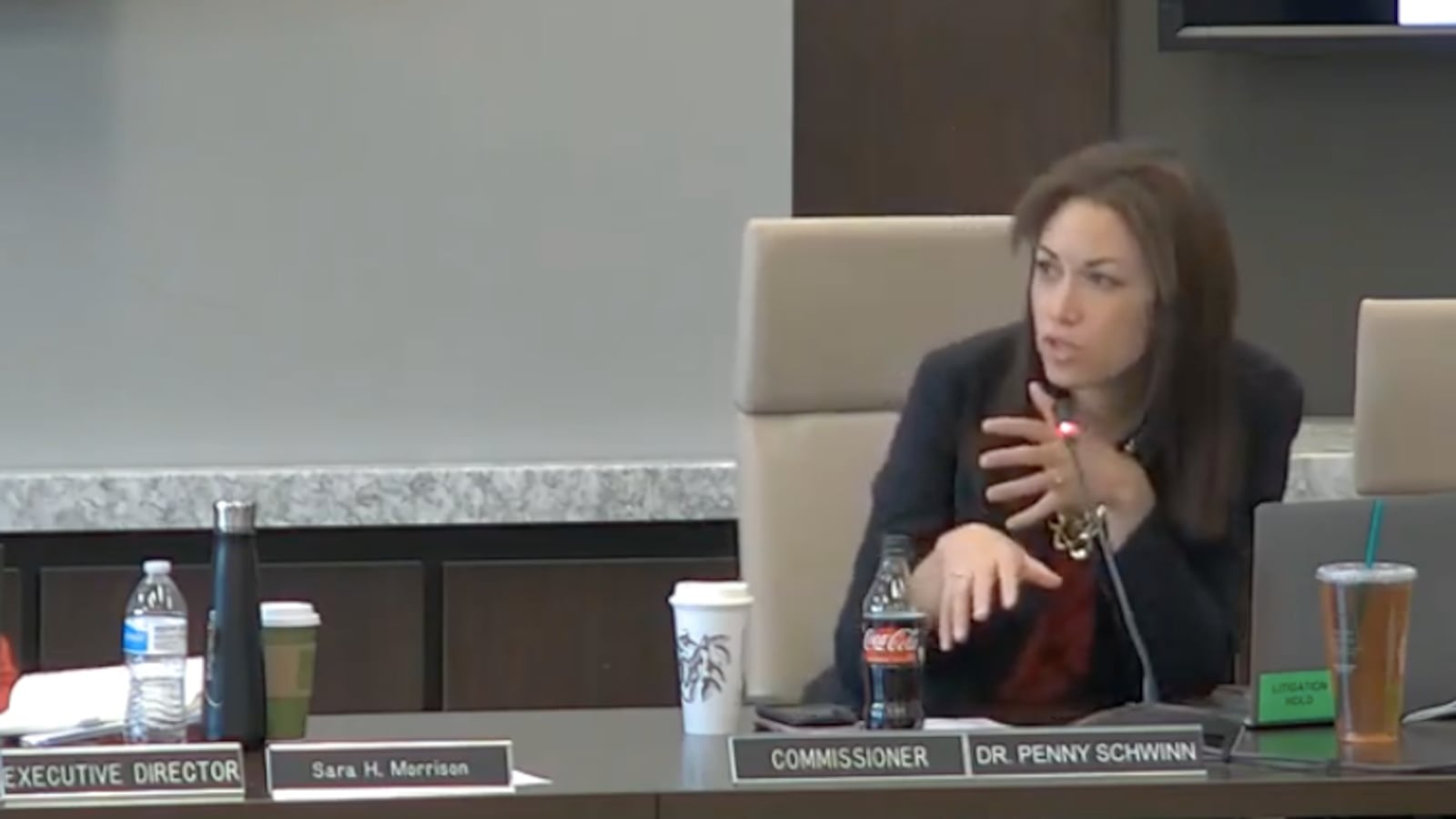Testing company Pearson will take over Tennessee’s student assessment program beginning next school year.
The state announced Thursday that the London-based testing giant had the strongest of two bids after Tennessee invited companies to seek the contract to administer its problem-plagued standardized testing program known as TNReady.
“Pearson is known for having incredibly strong administration and efficiency, and so I think it will be a good partnership,” Education Commissioner Penny Schwinn told members of the State Board of Education soon after the award became public.
Schwinn did not disclose the amount of Pearson’s bid but promised “a massive reduction in the cost of the test administration.” She previously had estimated it would cost about $20 million each year.
“We’ve been spending anywhere from $7 to $11.50 [per] paper test,” Schwinn said. “We’re in a really good place in terms of where we are as a state in negotiating, so that will allow us to have a really competitive cost structure.”
In choosing Pearson, the state bypassed its current vendor and the other bidder, Minnesota-based Questar Assessment, which is being paid $30 million for the just-completed administration of TNReady this school year. The proposal from from an undisclosed third company was thrown out for not meeting the state’s requirements, said Jennifer Johnson, spokeswoman for the state education department.
The state now begins negotiating with Pearson and will sign a contract by June 13, according to Tennessee’s timeline for choosing a new vendor.
Pearson will become the third company in five years to administer TNReady in the state’s messy transition to computer-based testing.
Questar took over in 2016 after former Education Commissioner Candice McQueen fired North Carolina-based Measurement Inc. when the launch of its online platform went so badly that most testing was scuttled for the year. Questar had problems, too. McQueen ordered the search for a new vendor last June after days of technical glitches undermined public trust in the reliability of 2018 results. While TNReady went much smoother this spring with fewer students testing online, state officials said they were ready for Questar to hand off the work.
Only a handful of companies have the capacity to manage large-scale testing like Tennessee is seeking for most of its 1 million public school students. The oldest and largest, Pearson is also the world’s largest textbook publisher and increasingly a player in digital curriculum. The British company makes most of its profits in the U.S.
It won’t be the first time that Tennessee has turned to Pearson. From 2003 through 2014, the company developed, administered, and scored tests for grades 3-8 and end-of-course exams for high school students. And in 2016, after McQueen fired Measurement Inc., the state awarded an emergency contract to Pearson to score completed TNReady tests before choosing Questar to take over. At the time, McQueen pointed out that Pearson scored the National Assessment of Student Progress, also known as the “Nation’s Report Card,” and had contracts in 25 states.
But Pearson won’t be expected to administer online tests when it takes over testing next school year. At the urging of Gov. Bill Lee this spring, the legislature ordered that students will take their state tests on paper in 2019-20 as Tennessee transitions to its new vendor.
“I felt pretty strongly about moving to paper next year,” Schwinn told the state board, emphasizing that Pearson will need at least a year to prepare for online testing. She cited problems in states like Texas, Utah, Wisconsin, and New York when they tried to do it in less time.
“We have never in this country seen an assessment vendor have a successful online administration with three to four months of standup — ever,” she said. “It’s just part of how difficult it is to set up an online administration in a new test and a new environment, especially in a state that has a significant rural community presence.”
Schwinn said Pearson also will be expected to return scores faster than during the first three years of TNReady, when some results weren’t released until the fall.
“Our goal is by next summer that we have all of the data and accountability metrics reported to districts no later than Aug. 31,” she said, “so that people can actually have that data and make decisions.”
Schwinn said Pearson will face penalties if it doesn’t meet the terms of its contract and also must establish offices in Tennessee instead of working remotely.
“We haven’t required that before … [but] those are some of the things that we wanted to correct for this time — have someone close — so if there is a problem, it is literally driving distance away and we’re able to meet in person more frequently,” she said.

